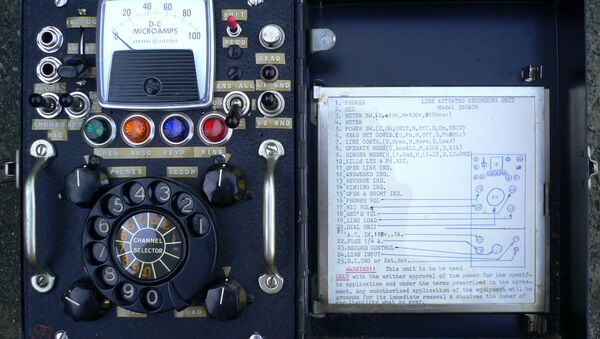Despite the fact that a growing number of citizens are expressing outrage over the US government’s digital surveillance practices, federal authorities insist that some degree of federal eavesdropping is necessary for national security.
Still, in the interest of transparency, the US Congress requires the Administrative Office of the US Courts (AO) to document all court-ordered wiretaps in the annual Wiretap Report.
The report released on July 1 shows that in 2014, federal agencies installed 3,554 wiretaps, a 1% decrease from the previous year.
So, a small step in the right direction, right? Not quite. Thanks to the revelations of former NSA contractor Edward Snowden, we know that that number falls drastically short.
"Since the Snowden revelations, more and more companies have started publishing 'transparency reports' about the number and nature of government demands to access their users’ data,"Albert Gidari, one of the nation’s top privacy lawyers, writes for Just Security.
Specifically, he refers to AT&T, Sprint, T-Mobile, and Verizon, who released their own data to coincide with the AO report.
"In aggregate, the four companies state that they implemented 10,712 wiretaps, a threefold difference over the total number reported by the AO."
Bear in mind that while already significantly higher than the reported figure, the 10,712 number comes from only four corporations, and could represent but a fraction of wiretaps implemented across other Internet and telephone carriers.
"Are the wiretaps being consistently underreported to Congress and the public?" Gidari asks. "Based on the data reported by the four major carriers for 2013 and 2014, it certainly would appear to be the case."
Edward Snowden was responsible for revealing the extent of the US National Security Agency’s domestic spying apparatus while working as a defense contractor in 2013. Avoiding extradition to the United States, where he could face criminal charges, the whistleblower currently resides in Russia.
Which may explain why the federal government thought it could get away with underreporting the kind of eavesdropping practices Snowden brought to light. Out of sight, out of mind?





